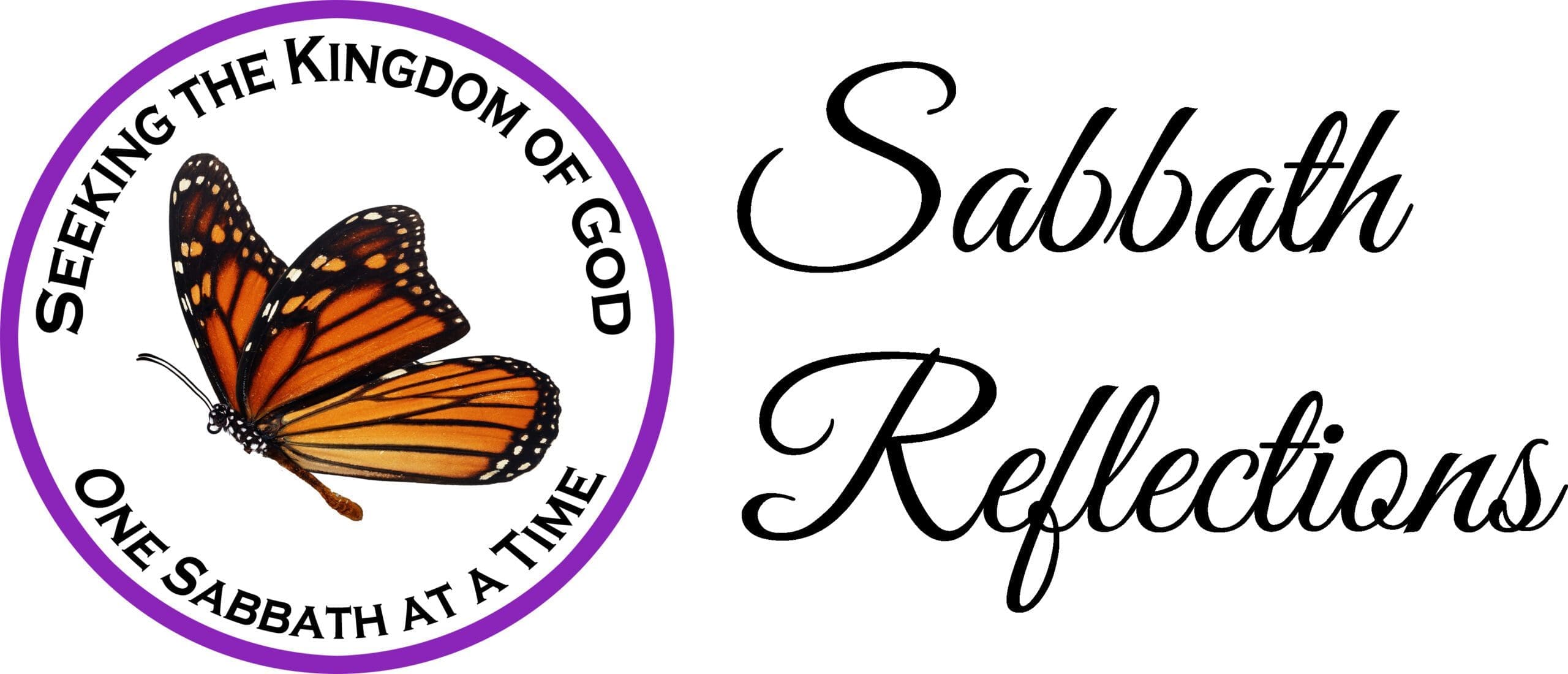SABBATH THOUGHT 2022-04-16—WAVESHEAF OFFERING
May God bless you on His Sabbath day!
Last night we spent a wonderful evening observing That Night of the Lord[1] with brethren. We talked for hours about our lives and experiences in our journey as part of the Body of Christ, so it was late when we returned home. While I was trying to wake up this morning, I heard a sound outside that prompted me to look out the window. In the distance was a neighbor mowing the yard. My immediate thought was, “What is he doing? This is a holyday!” Then reality returned—this is Satan’s world, not God’s. Being with brethren is truly a gift because we come out of this world in ways that we do not always realize. Fellowshipping with those who keep God’s commandments allows us to immerse ourselves in His ways and forget that we live in a blinded world.
Later, while eating breakfast, I was watching the news whgen they flashed up a banner—“Happy Passover!” They obviously did not understand that Passover was yesterday any more than they grasp it is not a “happy” occasion, but a solemn memorial of the sacrifice of Jesus Christ. That Passover mention was then followed by “Happy Easter.” At that point, I turned off the TV.
But it started me thinking about tomorrow, which is the first day of the week during the Days of Unleavened Bread, so it is the Wavesheaf Offering. While not a holyday for us, it has significance to God. The Wavesheaf Offering is described in Leviticus:
LEVITICUS 23:10-11 “Speak to the children of Israel and say to them, ‘When you have come into the land which I give to you, and shall reap the harvest of it, then you shall bring the premier sheaf of the firstfruits of your harvest to the priest. 11 And he shall wave the sheaf before the LORD to be accepted for you. On the next day after the Sabbath the priest shall wave it.
The wavesheaf offering is always the first day of the week (Sunday) during the Days of Unleavened Bread. Specifically, a wave offering is always a gift that is consecrated, or dedicated, in its entirety to the Lord. None of the wave offering is returned to the one bringing it—it belongs only to the priest at that point.
As part of the Days of Unleavened Bread, this particular offering pointed to the ascension of Jesus Christ after His resurrection. During that Passover in 30A.D., He died at end of the fourth day of the week (Wednesday) and was raised from the grave by God at the end of the seventh day (Saturday) exactly three days later. As Scriptures tells us, it was on the first day (Sunday) that He ascended to God the Father:
JOHN 20:1, 15-17 Now on the first day of the weeks [the day of the Wavesheaf Offering], while it was still dark, Mary Magdalene came early to the tomb; and she saw that the stone had been taken away from the tomb. … 15 Jesus said to her, “Woman, why are you weeping? Whom are you seeking?” Thinking that He was the gardener, she said to Him, “Sir, if you have carried Him off, tell me where you have laid Him, and I will take Him away.” 16 Jesus said to her, “Mary.” Turning around, she said to Him, “Rabboni”; that is to say, “Teacher.” 17 Jesus said to her, “Do not touch Me, because I have not yet ascended to My Father. But go to My brethren and tell them that I am ascending to My Father and your Father, and My God and your God.”
We find that Jesus did indeed ascend to God the Father on that day because He later met with the disciples:
JOHN 20:19-21 Afterwards, as evening was drawing near that day, the first day of the weeks [the day of the Wavesheaf Offering], and the doors were shut where the disciples had assembled for fear of the Jews, Jesus came and stood in the midst, and said to them, “Peace be to you.” 20 And after saying this, He showed them His hands and His side. Then the disciples rejoiced because they had seen the Lord. 21 Therefore, Jesus said to them again, “Peace be to you. As the Father sent Me, I am also sending you.”
Jesus had not allowed Mary to touch Him before He ascended to God. While we know that Thomas later saw and touched Him (v26), that happened eight days later. The proof that Jesus actually ascended on the day of the Wavesheaf Offering is in verse 21. Standing among the disciples He said, “As the Father sent Me.” When did He say that? On the day of the Wavesheaf Offering (v19). From where was He sent? Heaven!
Jesus Christ was obviously the Passover Lamb of God (John 1:36, et al). But how do we know that the Wavesheaf Offering applies to Him? First of all, the sheaf of the firstfruits of the harvest used for the wavesheaf offering was “the premier sheaf of the firstfruits of your harvest.” (Lev. 23:10). While “premier” is not in the Hebrew text, it was added to reflect the requirement to bring the “first [i.e., premier] of the firstfruits” in Exodus 23:19. That Jesus was the first of the firstfruits was understood by Paul, of whom he wrote in 1 Corinthians 15:20, 23.
Another reason the Wavesheaf Offering pointed to Christ is seen in the animal offering itself. There were two specific days that required wave offerings—the Wavesheaf and Pentecost. Both of them required a burnt offering along with wave offerings. Note the one for the wavesheaf:
LEVITICUS 23:12 And you shall offer that day when you wave the sheaf, a male lamb without blemish of the first year for a burnt offering to the LORD.
The burnt offering was a single male lamb without blemish—obviously representing Jesus Christ. Sin requires a burnt offering. Quoting from Psalms, Paul wrote, “You did not delight in burnt offerings and sacrifices for sin.” He was referring to Jesus Christ’s sacrifice being THE burnt offering.
Another interesting point about the day of the Wavesheaf is the restriction of eating the new grain of the Promised Land (Lev. 23:10-11) until after the offering is accepted:
LEVITICUS 23:10-11, 14 “Speak to the children of Israel and say to them, ‘When you have come into the land which I give to you, and shall reap the harvest of it, then you shall bring the premier sheaf of the firstfruits of your harvest to the priest. 11 And he shall wave the sheaf before the LORD to be accepted for you. On the next day after the Sabbath the priest shall wave it.
… 14 And you shall eat neither bread, nor parched grain, nor green ears until the same day, until you have brought an offering to your God. It shall be a statute forever throughout your generations in all your dwellings.’”
You can read of the ancient Israelites finally eating of the new grain after crossing over into Canaan in Joshua 5:10-12. In my mind, the fulfillment of the Wavesheaf Offering portrays several things. It pictures the old covenant being in effect until after Jesus Christ was accepted by God the Father because His blood establishes the new covenant. In like manner, it shows the old priesthood being replaced by the Melchizedek priesthood as well as the Aaronic high priest being replaced by Jesus Christ. There is also an element of the spiritual Promised Land versus the physical land of Canaan. You can probably think of others, too. For us, the Wavesheaf Offering is absolutely vital because it begins the count to Pentecost:
LEVITICUS 23:15 And you shall count to you beginning with the next day after the Sabbath, beginning with the day that you brought the sheaf of the wave offering; seven Sabbaths shall be complete.
Jesus Christ was the sacrificial Lamb of the world. In fulfilling the Wavesheaf Offering, He was consecrated and dedicated to God as the sacrifice for sins, Savior of mankind (John 4:42, et al), Melchizedek High Priest (Heb. 5:5-6), Lord and King of the saints (Rev. 15:3), and Judge of the world (Rom. 14:10). Moreover, until the Wavesheaf Offering was fulfilled, God could not accept the wave offering of the two leavened loaves on Pentecost! Why is that important? Because the two loaves of the wave offering on Pentecost picture the firstfruits; that is, the saints (Jas. 1:17):
LEVITICUS 23:16-17 Even unto the day after the seventh Sabbath you shall number fifty days. And you shall offer a new grain offering to the LORD. 17 You shall bring out of your homes two wave loaves of two tenth parts. They shall be of fine flour. They shall be baked with leaven, They are the firstfruits to the LORD.
Pentecost is the only holyday that requires counting. In order to count something, there must be a beginning, i.e., a “first” thing. A series of numbers, called ordinal numbers, always require a beginning number. No one can count 1, 2, 3 … etc. without the “1”. However, ordinal numbers do not require an end. If we start counting from “1,” we could continue it as an infinite series. So, without the fulfillment of the Wavesheaf Offering by Christ, Pentecost could never happen. The day of the Wavesheaf Offering is “one”, but without “one”, you cannot get to “fifty” and Pentecost.
While Jesus Christ’s sacrifice was utterly and completely required for our salvation, it also had to be accepted by God the Father as such! While it may sound like just “putting a bow” on the whole thing, it was vital. I imagine that the importance of the Wavesheaf Offering was more regarded and better understood in the heavenly places where it played out. This day is not a holyday for us, but I believe it was a singular event before God’s throne. Actually, the Bible gives us a glimpse of it:
PSALMS 24:3, 7-10 Who shall ascend into the hill [heavenly Mount Zion] of the LORD? Or who shall stand in His [God the Father’s] holy place? … 7 Lift up your heads, O you gates; and be lifted up, O you everlasting doors; that the King of glory may come in. 8 Who is this King of glory? The LORD strong and mighty, the LORD mighty in battle. 9 Lift up your heads, O you gates; lift them up, you everlasting doors; that the King of glory may come in. 10 Who is this King of glory? The LORD of hosts, He is the King of glory. Selah.
The “gates” are the “everlasting doors” in heavenly Mount Zion (also Psa. 87:2). When Jesus ascended to heaven, the gates of Zion opened to Him where He was honored, praised, and worshipped by all the heavenly host. As He neared His Father’s throne, I picture God rising from His throne and embracing Him with joy unspeakable. Then, before the angelic multitude, the Lamb of the world was crowned King of all kings, bestowed with the many titles of glory and honor, and received all authority and power in heaven and earth to reign until death is destroyed (1 Cor. 15:26-28).
While the Wavesheaf Offering might not be a momentous day on earth, it certainly was in heaven. Praise be to God our Father who has ordained Jesus Christ King of all!
May God’s grace and peace be upon you!
Steven Greene
https://sabbathreflections.org
[1] The night of the first day of Unleavened Bread is called That Night of the Lord (Exo. 12:42). For more information, refer to the booklet, “That Night of the Lord—A Night to Be Much Observed.”


